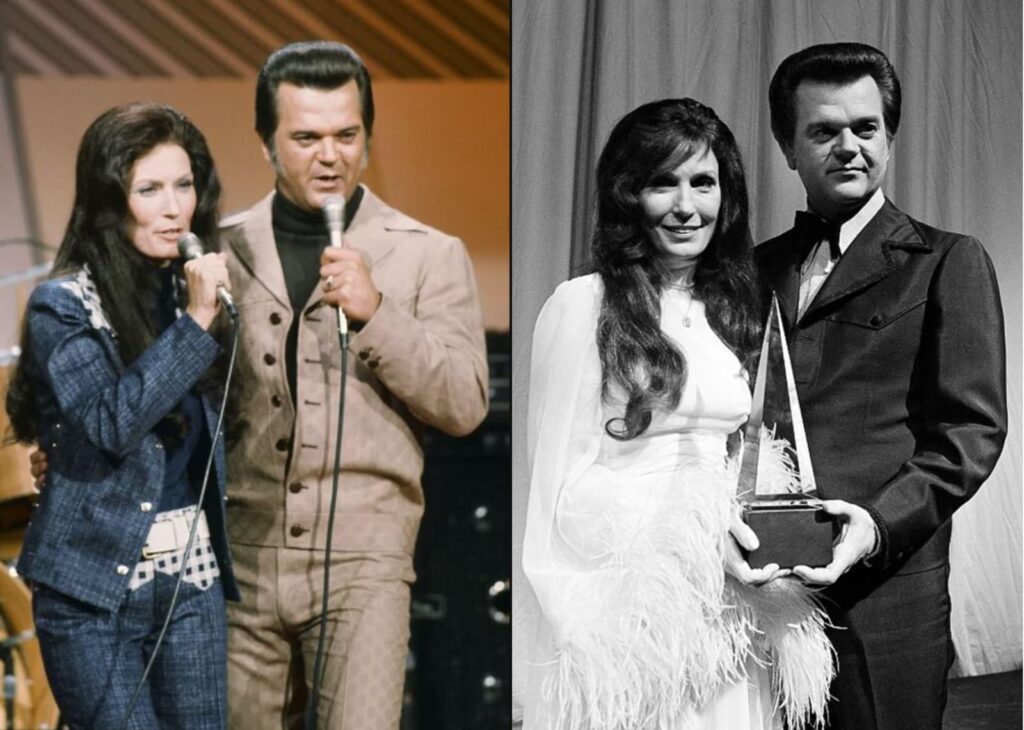
Lead Me On: A Timeless Duet of Vulnerability and Unwavering Commitment
A Country Classic for the Ages
In the annals of country music, few partnerships have been as iconic and enduring as that of Conway Twitty and Loretta Lynn. Their collaborations were a masterclass in chemistry, blending Twitty’s smooth, velvety baritone with Lynn’s raw, authentic soprano. Among their many timeless duets, the 1971 hit “Lead Me On” stands as a poignant testament to their artistry. Released in May 1971, the song quickly resonated with audiences, climbing to a respectable Number 2 on the Billboard Hot Country Singles chart. It wasn’t just a commercial success; it was a deeply felt ballad that spoke to the hearts of listeners navigating the complexities of love and trust.
The song’s brilliance lies in its simplicity and emotional honesty. Written by Twitty himself, “Lead Me On” captures a moment of profound vulnerability and the unwavering desire to be guided by a loved one. The narrative is straightforward yet powerful: one partner, weary from the trials of a difficult life, asks their beloved to “lead me on” through the darkness. It’s a plea for guidance, comfort, and assurance. The lyrics are a conversation between two people who have been through the wringer, and the bond they share is the only thing that keeps them going. It’s a universal theme that transcends genre and time, making it as relevant today as it was over half a century ago.
For those of us who grew up with the sounds of country radio in the 1970s, “Lead Me On” evokes a powerful sense of nostalgia. It was a staple on jukeboxes in smoky honky-tonks and a constant companion on long drives through the countryside. The song’s melody, with its gentle, lilting rhythm, feels like a warm embrace. Twitty’s delivery is filled with a tender weariness, while Lynn’s response is a beautiful blend of strength and empathy. Their voices intertwine, each supporting the other, creating a rich tapestry of emotion that feels both personal and universal.
Beyond the musicality, the story behind the song adds another layer of depth. At the time, Twitty and Lynn were at the peak of their individual careers, yet they found time to collaborate on duets that would become legendary. Their off-stage friendship and mutual respect for each other’s talent translated into an on-stage chemistry that was palpable. They weren’t just singing a song; they were having a conversation, sharing a moment of quiet intimacy that we, the listeners, were privileged to witness. “Lead Me On” is a prime example of this synergy, showcasing their ability to convey a deep, abiding love that feels authentic and earned.
The song’s enduring appeal also lies in its subversion of traditional gender roles in country music. While many songs from that era portrayed men as stoic and women as dependent, “Lead Me On” presents a different dynamic. Here, the man is the one who is vulnerable, admitting his weakness and asking for help. The woman, in turn, is a source of strength and solace, a steady hand in a turbulent world. This mutual reliance and respect is a beautiful and powerful message, especially for a song released in 1971. It spoke to the heart of what true partnership is all about: not about who is stronger, but about leaning on each other when the road gets tough.
Looking back, “Lead Me On” isn’t just a song; it’s a snapshot of a different time, a reflection of a generation that valued sincerity and authenticity. It reminds us of a time when music was less about production and more about storytelling, when a simple melody and honest lyrics could move mountains. For all of us who have weathered storms and found strength in the love of another, this song remains a timeless anthem, a gentle reminder that we don’t have to walk alone. It’s a masterpiece of country music, a beautiful and heartfelt duet that will continue to resonate for generations to come.